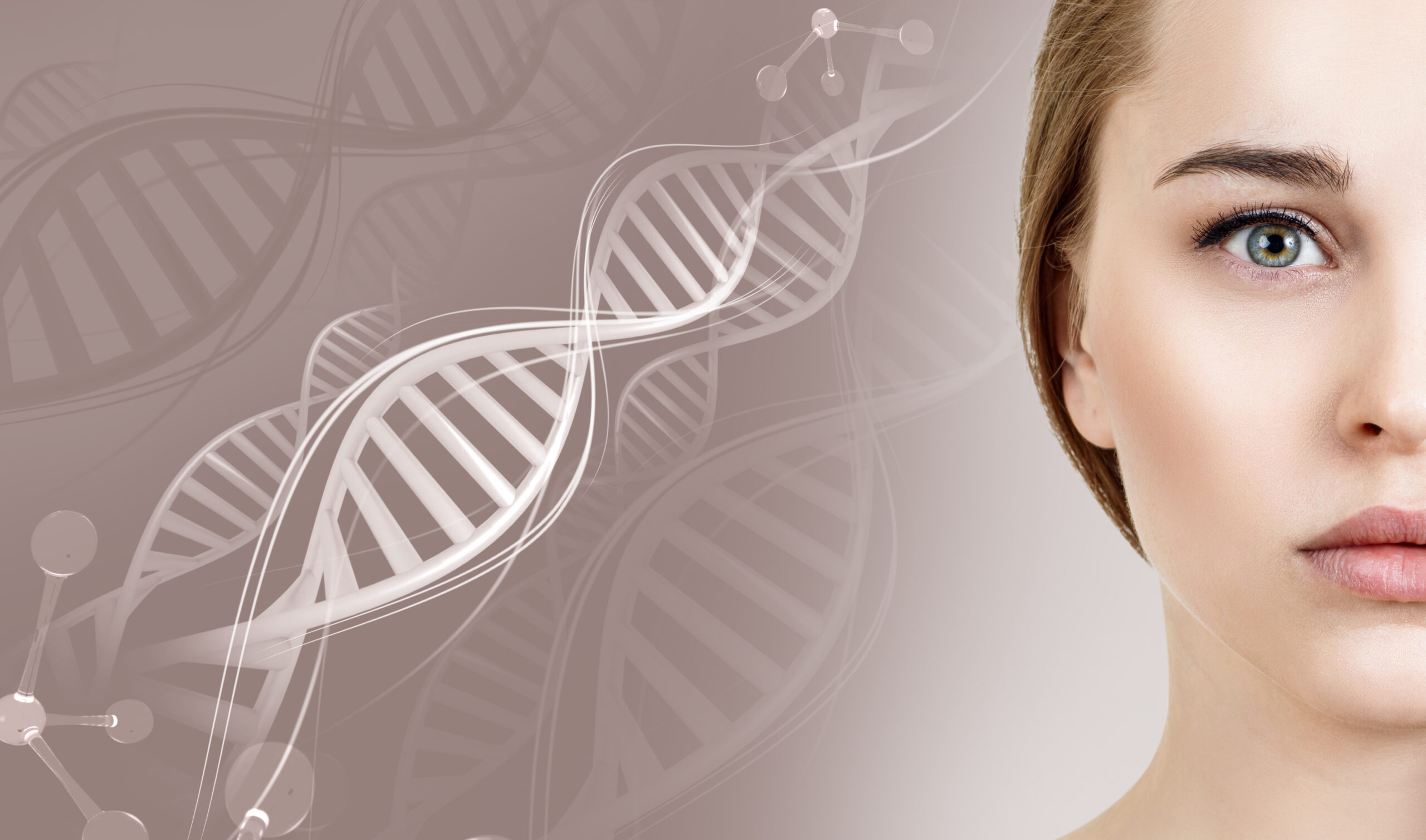6 Tips for Reducing Stress and Improving Your Skin Health
Have you ever stressed yourself out of a good skin day?
Who hasn’t?
That looming deadline, the never-ending to-do list, the family drama – stress is a fact of life. But what if I told you that worry and tension aren’t just messing with your mental state; it’s waging war on your skin?
Stress can wreak havoc on your complexion, causing breakouts, dryness, wrinkles, and even worsening skin conditions.
But before you panic, here’s the good news: the mind-skin connection is a two-way street. By managing stress, you can improve your mental well-being and give your skin the chance to heal and thrive.
The Mind-Skin Connection: How Stress Gets Under Your Skin (Literally)
So how exactly does that looming deadline or never-ending to-do list translate to blemishes and wrinkles?
It concerns a complex connection between your nervous, hormones, and immune systems. (1)
When faced with a stressful situation, your body initiates the “fight-or-flight” response, a survival mechanism inherited from our ancestors. This triggers the sympathetic nervous system to release hormones, including adrenaline and cortisol.
In the short term, this hormonal surge is beneficial. It increases your heart rate, blood pressure, and blood sugar, providing the energy needed to deal with the stressor. (2)
However, chronic stress keeps cortisol levels elevated. This disrupts the delicate balance of the body’s systems, leading to problems throughout your body, including your skin.
Here’s how stress can manifest on your skin: (3, 4, 5, 6)
- Inflammation: Cortisol triggers the release of inflammatory chemicals throughout the body, including the skin. This chronic low-grade inflammation can lead to redness and irritation and worsen skin conditions like eczema and psoriasis.
- Increased oil production: Stress hormones stimulate oil glands in your skin, amping up oil production and creating a breeding ground for acne breakouts.
- Weakened barrier function: Chronic stress weakens your skin’s defenses, making it more susceptible to dryness, irritation, and infection.
- Impaired wound healing: Stress hormones can slow the skin’s healing process. This can prolong existing skin concerns and make people more prone to scarring.
- Premature aging: Stress hormones break down collagen and elastin, the proteins that give your skin youthful structure and elasticity. This contributes to the formation of wrinkles and fine lines.
This is just a glimpse into the complex science behind stress and skin health. However, it highlights the undeniable connection between your mental well-being and complexion.
How Stress Impacts Your Skin
We’ve examined the science behind stress and its impact on your skin. Now, let’s look at how stress can worsen common skin issues like acne, dryness, and rashes and even contribute to premature aging. We’ll also examine how stress exacerbates eczema, psoriasis, and rosacea.
Remember, managing stress isn’t just about feeling calmer and more centered; it’s a powerful tool for achieving healthier, happier skin.
Let’s explore these stress-skin connections:
Acne
Stress triggers the release of cortisol, which has a double-whammy effect on acne-prone skin.
First, cortisol ramps up oil production, clogging pores and creating a breeding ground for bacteria. Second, it fuels inflammation, worsening existing breakouts and making them more painful. This can create a vicious cycle of stress, causing acne and acne, causing more stress.
Dry and Flaky Skin
Chronic stress disrupts the skin’s natural barrier function, your skin’s first line of defense against moisture loss. This delicate barrier, composed of lipids (oils) and corneocytes (skin cells), acts like a tight seal, keeping your skin hydrated and supple. (7)
The stress response triggers the release of the neuropeptide CRH (corticotropin-releasing hormone), which stimulates cortisol production. (8)
Cortisol disrupts the production of essential skin barrier lipids like ceramides, weakening the barrier’s ability to retain moisture. Additionally, stress can increase skin cell turnover, leading to excessive shedding and a flat appearance.
Rashes and Hives
Stress can trigger the release of histamine, a chemical involved in the inflammatory response. Histamine causes blood vessels to dilate and leak fluid, leading to redness, itching, and the raised welts characteristic of hives. (9)
While these are usually harmless and temporary, their itchiness can be quite bothersome.
Wrinkles and Premature Aging
Chronically elevated cortisol levels have a double-edged sword effect on your skin.
First, it breaks down collagen and elastin, the proteins that give your skin its youthful structure. Collagen provides the scaffolding that keeps skin firm and plump, while elastin allows it to snap back after stretching. Cortisol disrupts the production of these proteins, leading to the formation of wrinkles and fine lines. (10)
Second, cortisol can impair the skin’s natural repair process. It downregulates the production of fibroblasts, the cells responsible for collagen and elastin synthesis.
This one-two punch from cortisol accelerates the visible signs of aging.
Eczema
Eczema, also known as atopic dermatitis, is characterized by itchy, red, and inflamed skin. Stress can exacerbate eczema symptoms by triggering the release of inflammatory cytokines. These cytokines further activate the immune system, leading to increased inflammation and worsening eczema symptoms. (11)
Also, stress can disrupt the skin barrier function in people with eczema, making their skin more susceptible to irritants and allergens, triggering flare-ups.
Psoriasis
Psoriasis is an autoimmune condition causing red, scaly patches on the skin.
Similar to eczema, stress can worsen psoriasis symptoms by increasing inflammation. Stress triggers the release of neuropeptides, which stimulate the production of inflammatory cytokines like IL-17. This particular cytokine plays a role in the development of psoriatic lesions. (12)
Stress can also disrupt the natural cycle of skin cell growth and differentiation in people with psoriasis, leading to the rapid buildup of skin cells and thick, scaly patches.
Rosacea
Rosacea is a chronic skin condition that causes facial redness, bumps, and visible blood vessels. The exact mechanism isn’t fully understood, but research suggests stress may be a trigger for rosacea flare-ups in a few ways:
- Increased blood flow: Stress can activate the sympathetic nervous system, constricting blood vessels. This is followed by rebound vasodilation (widening of blood vessels) in the facial skin, causing flushing and redness, hallmark rosacea symptoms. (13)
- Inflammation: Stress can trigger the release of inflammatory mediators, like neuropeptides and substance P, which can worsen rosacea symptoms. These mediators can increase blood flow, activate immune cells, and contribute to developing papules (bumps) and pustules (pimple-like lesions) characteristic of rosacea. (14)
Remember, managing stress can be a powerful tool for controlling these issues. In the next section, I’ll equip you with practical strategies for combating stress and achieving a healthier, happier complexion!
Tips for De-Stressing Your Skin
Feeling overwhelmed can show on your face – literally!
But take a deep breath because chronic stress doesn’t have to wreak havoc on your skin. Here are six powerful tips to de-stress your skin and promote a healthy, radiant complexion:
- Mind-Body Connection: Stress management is critical. Meditation techniques like meditation, yoga, or deep breathing can help calm your nervous system, reduce cortisol levels, and improve your overall health, which can benefit your skin health.
- Sweat It Out: Exercise is a powerful stress reliever. Aim for at least 30 minutes of moderate-intensity exercise most days of the week. Exercise promotes blood flow, bringing oxygen and nutrients to your skin cells.
- Sleep on It: When well-rested, your body is better equipped to handle stress. Prioritize getting 7-8 hours of quality sleep each night. Create a relaxing bedtime routine and establish a consistent sleep schedule.
- Nourish Your Skin: Give your skin the TLC it deserves. Stick to a gentle cleansing routine and a non-comedogenic moisturizer that won’t clog pores. Don’t forget sun protection—UV rays are a significant skin stressor!
- Hydration is Key: Combat stress-induced dryness by staying hydrated from the inside out. Aim for eight glasses of water daily, and try including hydrating fruits and veggies in your diet.
- Say No When Needed: Don’t overload your plate! Learn to decline requests that will add to your stress politely. Prioritize self-care activities that leave you feeling refreshed and rejuvenated.
Remember, consistency is key! Incorporating these tips into your daily life will help you manage stress and improve your skin’s health.
Manage Stress, Enhance the Glow
In this blog, I explored the mind-skin connection and how stress can impact skin health. The good news is that you can manage stress to promote a healthier, happier you (and a happier complexion!).
Ready to learn more secrets from a functional dermatology provider?
Grab my FREE ebook, “Unlock Clearer Skin: 10 Pillars of Functional Dermatology You Need to Know,” packed with expert advice on optimizing your skin health from the inside out.
Resources
1. Slominski, AT. “Stress and the skin.” PubMed, https://pubmed.ncbi.nlm.nih.gov/20467395/. Accessed 20 May 2024.
2. “How Stress Cancan Impact the Body.” Cleveland Clinic Newsroom, 6 February 2023, https://newsroom.clevelandclinic.org/2023/02/06/how-stress-can-impact-the-body. Accessed 20 May 2024.
3. “About Wrinkles.” Mayo Clinic Health System, https://www.mayoclinichealthsystem.org/locations/mankato/services-and-treatments/cosmetic-services/wrinkles. Accessed 20 May 2024.
4. Seng, Fong. “Study of psychological stress, sebum production and acne vulgaris in adolescents.” PubMed, https://pubmed.ncbi.nlm.nih.gov/17340019/. Accessed 20 May 2024.
5. “Stress and eczema.” National Eczema Society, https://eczema.org/information-and-advice/triggers-for-eczema/stress-and-eczema/. Accessed 20 May 2024.
6. “Understanding the Epidermal Barrier in Healthy and Compromised Skin: Clinically Relevant Information for the Dermatology Practitioner: Proceedings of an Expert Panel Roundtable Meeting.” NCBI, https://www.ncbi.nlm.nih.gov/pmc/articles/PMC5608132/. Accessed 20 May 2024.
7. Kanwar, AJ. “Skin barrier function – PMC.” NCBI, https://www.ncbi.nlm.nih.gov/pmc/articles/PMC5967208/. Accessed 20 May 2024.
8. Rieder, Evan A. “Psychosocial Stress and Mechanisms of Skin Health: A Comprehensive Update.” PubMed, 1 January 2021, https://pubmed.ncbi.nlm.nih.gov/33400410/. Accessed 20 May 2024.
9. “Histamine Intolerance—A Kind of Pseudoallergic Reaction.” NCBI, 15 March 2022, https://www.ncbi.nlm.nih.gov/pmc/articles/PMC8945898/. Accessed 20 May 2024.
10. “Physiology, Cortisol – StatPearls.” NCBI, https://www.ncbi.nlm.nih.gov/books/NBK538239/. Accessed 20 May 2024.
11. “Psychological Stress and Atopic Dermatitis: A Focus Group Study.” NCBI, https://www.ncbi.nlm.nih.gov/pmc/articles/PMC10579569/. Accessed 20 May 2024.
12. “Psoriasis and Psycho-Dermatology – PMC.” NCBI, 10 July 2013, https://www.ncbi.nlm.nih.gov/pmc/articles/PMC3889305/. Accessed 20 May 2024.
13. Veerkamp, Patrick. “Rosacea Fulminans Precipitated by Acute Stress: A Case Report Describing an Integrative Approach for a Patient Reluctant to Use Isotretinoin.” NCBI, https://www.ncbi.nlm.nih.gov/pmc/articles/PMC5312834/. Accessed 20 May 2024.
14. “Molecular Mechanisms of Neurogenic Inflammation of the Skin.” NCBI, 5 March 2023, https://www.ncbi.nlm.nih.gov/pmc/articles/PMC10003326/. Accessed 20 May 2024.




